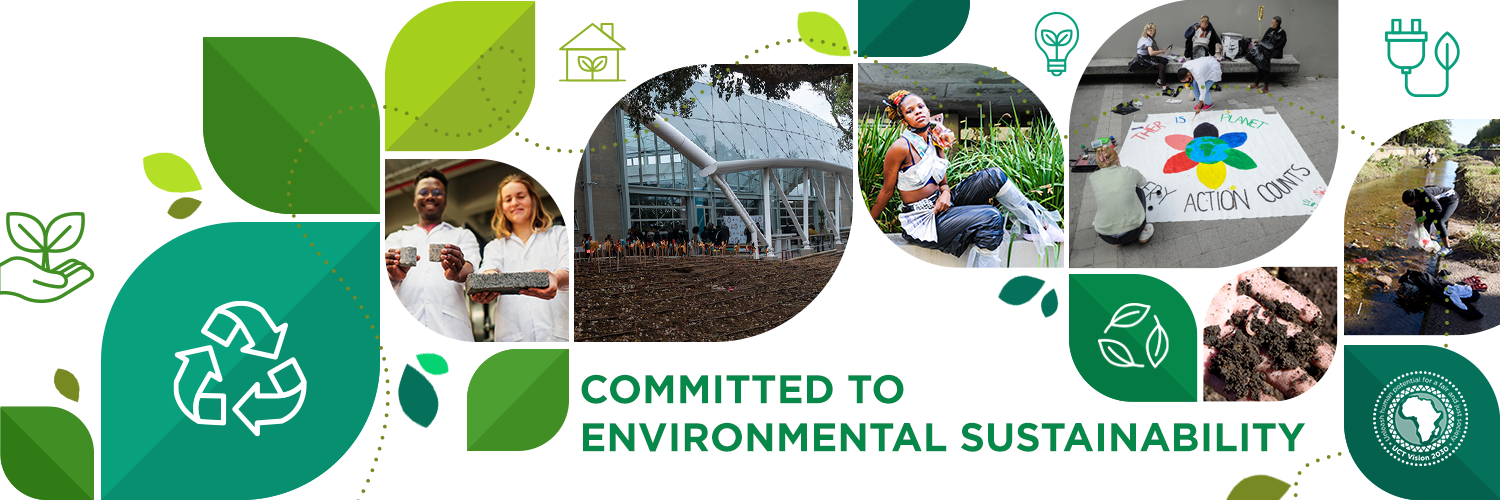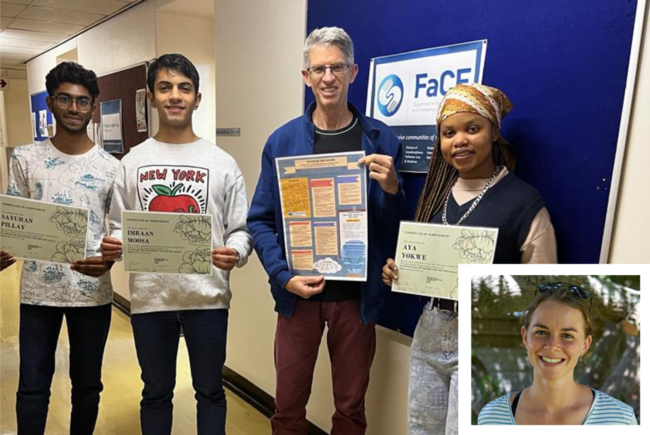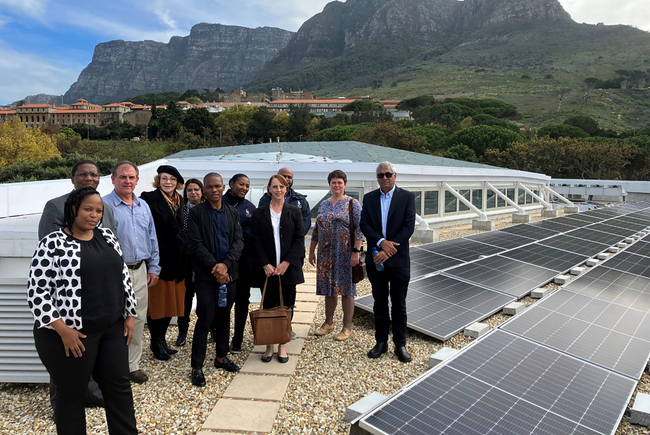Grant of €12m for climate change project
27 October 2023 | Story Ridovhona Mbulaheni. Photo Robyn Walker. Read time 4 min.
A University of Cape Town (UCT) biogeochemical oceanographer Associate Professor Sarah Fawcett is part of an international research team that has received funding from the European Research Council (ERC) to better understand the ocean’s role in climate change.
Fine-scale ocean dynamics play an important role in the exchange of heat and carbon between the ocean and the atmosphere. They influence the ocean’s ability to mitigate climate change, as well as how the ocean is affected by climate change. The WHIRLS project zooms in on such fine-scale processes and explores their impact on climate, marine biogeochemistry and biodiversity. Professor Fawcett will work with physical oceanographers and numerical modelers from Germany, France and Sweden to improve our understanding of the ocean’s fine scale and, ultimately, our ability to predict future changes in marine systems and climate.
The research will focus on the world’s most energetic region, the Agulhas Current System, around South Africa. “The Agulhas system is not only unique in terms of its vigorous circulation, intense air–sea heat and carbon uptake and the particularly high productivity and diversity of its marine ecosystem,” said Fawcett. “It also plays a key role in the global ocean circulation and strongly influences regional and global climate.”
Synergistic and interdisciplinary approach
Heat and carbon are the primary factors influencing regional and global climate. The ocean absorbs huge amounts of heat, limiting the effects of global warming. When the ocean releases heat to the atmosphere, the climate becomes warmer and wetter, and vice versa. Carbon that enters the ocean is distributed by ocean currents and taken up by phytoplankton. These tiny plants form the base of the marine food web and are key to marine biodiversity. Additionally, carbon stored in the ocean is removed from the atmosphere for hundreds of years, which also helps to mitigate climate change.
The exchange of heat and carbon between the ocean and the atmosphere, as well as their distribution within the ocean, is driven by larger currents and smaller eddies – and by even smaller circulation features, termed “whirls”. Through the WHIRLS project, funded by one of the ERC’s prestigious and highly competitive Synergy Grants, Fawcett, an associate professor in UCT’s Department of Oceanography; Professor Arne Biastoch from GEOMAR Helmholtz Centre for Ocean Research Kiel, Germany; Professor Sabrina Speich from the Ecole Normale Supérieure of Paris, France; and Professor Sebastiaan Swart from the University of Gothenburg, Sweden, will implement a synergistic and interdisciplinary approach to investigate these fine-scale processes. WHIRLS will be funded at the level of almost €2 million over six years, with €2.3 million awarded to UCT.
“WHIRLS is basically about fine-scale processes having large-scale impacts.”
The project will employ the latest observational capabilities, from ship-based measurements to autonomous instruments and satellites. It aims to characterise in three dimensions all the relevant physical processes, resolved at time scales from days to seasons. WHIRLS will observe, model and track the interactions among the atmosphere, surface ocean and the ocean interior, and will investigate vertical mixing and the pathways of heat, nutrients and carbon within the ocean.
The collected data will be used to design and verify high-resolution models and to enable them to address fine-scale dynamics and their effects – responding to the urgent imperative to represent processes at the scale of kilometres in Earth system models. The model results will improve climate predictions and projections. WHIRLS contributes to the United Nations Decade of the Ocean Science for Sustainable Development and helps to address South African and European scientific priorities.
“WHIRLS is basically about fine-scale processes having large-scale impacts”, said Professor Biastoch, an ocean modeller at GEOMAR and the coordinator of the project. “Whirls refer to processes on scales of less than 100 km. This might still sound large, but such patterns are small in the context of the global ocean and are currently poorly resolved in ocean observations and climate models.”
 This work is licensed under a Creative Commons Attribution-NoDerivatives 4.0 International License.
This work is licensed under a Creative Commons Attribution-NoDerivatives 4.0 International License.
Please view the republishing articles page for more information.

Committed to Environmental Sustainability
The University of Cape Town’s (UCT) Vision 2030 strategy’s goal is to unleash human potential in pursuing a just and equitable society. This vision rests on three fundamental pillars: sustainability, excellence, and transformation. In line with this strategy, the university has developed different initiatives, including a sustainability strategy, to provide direction for UCT’s environmental sustainability. This strengthens the university’s ambitions of being a net-zero carbon/energy, water, and waste-to-landfill campus by or before 2050.
UCT Sustainability and the SDGs 2022
UCT is committed to addressing the most critical problems facing the continent and the rest of the world. This report tracks the progress UCT is making towards the United Nation’s Sustainable Development Goals and the African Union Agenda 2063.
Download the PDF version | Read the full report:

The University of Cape Town’s (UCT) Faculty of Health Sciences (FHS) took part in their first scorecard for the Planetary Health Report Card (PHRC), a global student-led initiative to promote education about planetary health and environmentally sustainable healthcare in health science campuses
31 May 2023 - 4 min read
“We learnt some valuable lessons during [COVID-19] lockdown that we will take into the future, many of them contributing to more efficient and environmentally sustainable digital methods for doing certain things.”
– Manfred Braune, the director for environmental sustainability at UCT





























